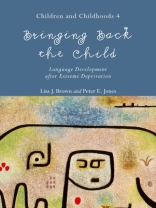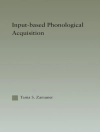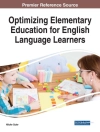This book presents a unique, multi-faceted investigation of the language abilities of three older adopted Romanian orphans who experienced extreme deprivation in their early years. Serena, Gabrielle and Ingrid were aged 7 years, 6 years and nearly 4 years, respectively, when rescued by UK families from the orphanages where they were placed at or around their birth. In these institutions, an absence of social and psychological stimulation, nutritious food and physical exercise had left them completely dependent on care staff for their most basic needs, and effectively without language. The book presents the findings of a two year research study of the competencies in language, nonverbal cognition and social and communicative behaviour which the girls acquired over several years in their new homes, and discusses the implications of their linguistic progress for the Critical Period Hypothesis and modularity. Detailed qualitative analysis of the girls’ language in everyday conversation is combined with quantitative analysis of developmental progress and structural complexity and with the results of standardized tests. The authors argue that the girls’ progress in language defies the predictions of current Critical Period models and offers no evidence of modular dissociations between language and other cognitive domains. These findings are considered in relation to other research on language development in internationally adopted children.
Lisa J. Brown & Peter E. Jones
Bringing Back the Child [PDF ebook]
Language Development after Extreme Deprivation (Children and Childhoods 4)
Bringing Back the Child [PDF ebook]
Language Development after Extreme Deprivation (Children and Childhoods 4)
Köp den här e-boken och få 1 till GRATIS!
Formatera PDF ● Sidor 275 ● ISBN 9781443870122 ● Utgivare Cambridge Scholars Publishing ● Publicerad 2014 ● Nedladdningsbara 3 gånger ● Valuta EUR ● ID 4107123 ● Kopieringsskydd Adobe DRM
Kräver en DRM-kapabel e-läsare












